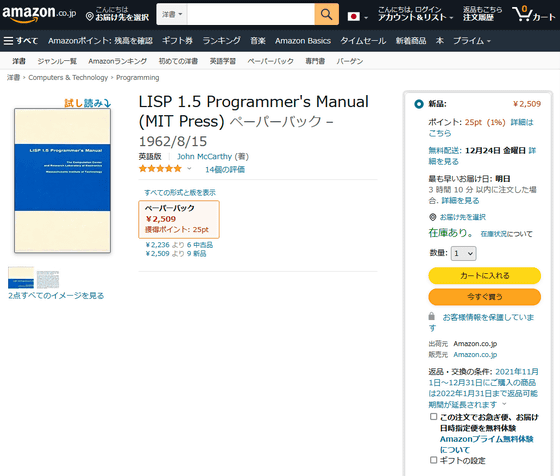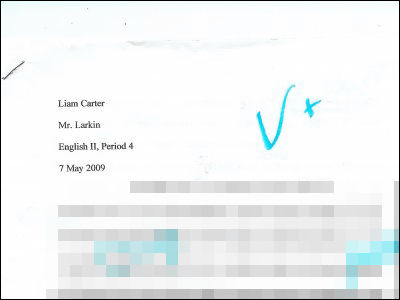What is the 'programmer's must-read classic book' chosen by Alan Kay, the father of personal computers?

by
Computers used to be huge, occupying the entire wall, and it was natural for multiple people to use them. The concept of 'personal computer ' advocated by Alan Kay was the idea that a huge computer should be reduced to a size that can be used by an individual, and shaped the modern 'personal computer'. Mr. Alan Kay mentioned 'a classic that all programmers should read'.
Alan Kay's answer to Experienced programmers and computer scientists, what are some really old (or even nearly forgotten) books you think every new programmer should read? --Quora
https://www.quora.com/Experienced-programmers-and-computer-scientists-what-are-some-really-old-or-even-nearly-forgotten-books-you-think-every-new-programmer- should-read / answer / Alan-Kay-11
The book that Alan Kay praises as a 'big fan' is the 'LISP 1.5 Programmer's Manual ' by John McCarthy himself, the creator of the programming language LISP. According to Alan Kay, in order to read this book and grow up, not only reading the book while being aware of 'what should be done' and 'what is actually doing', but also an example written on page 13 It is important to 'rewrite by yourself'.
'LISP is more than just a programming language, it's the perfect language to train your thinking,' said Alan Kay, praising the 'LISP 1.5 Programmer's Manual' as a 'perfect classic.'
Amazon | LISP 1.5 Programmer's Manual (MIT Press) | McCarthy, John | Cryptography

Marvin Minsky's book 'Mathematical Theory of Computers ', one of the founders of the Massachusetts Institute of Technology's Institute of Artificial Intelligence and also known as the 'father of artificial intelligence,' is a mathematical book that contains many theorems, proofs, and ideas. , The method of teaching readers how to think is wonderful. Alan Kay cites 'mathematical theory of computers' as one of his 'best books', but commented that 'it was missing from the previously published' 99 Reading Lists '.' doing.
Mathematical Theory of Computers (1970) | Marvin L. Minsky, Hiroshi Kanayama | Books | Online Shopping | Amazon

Alan Kay devotes most of his space to the two books mentioned above, but he also developed the Burroughs B5000 and others, which his teacher Robert Burton used for his lectures, ' Advances in Programming and To learn far more outstanding ideas about the concepts of ' Non-Numerical Computation ', 'Myth of the Moon ' and 'Computer Science', which show that problems in software project management are unevenly distributed over time. Books such as 'System Science ' by Herbert Simon , the winner of the Nobel Prize, and 'Programming Language ', a book by Kenneth Iverson who developed the programming language APL , which can train thinking methods from the same approach as LISP. In addition, Joe Armstrong 's doctoral dissertation ' (PDF file) Making reliable distributed systems in the presence of sodware errors ', known for the creation of the functional programming language ' Erlang ' and the phrase 'Why object orientation is fucking' And 'Learn about design and implementation,' says David Fisher's doctoral dissertation, ' Control structures for programming languages .'
You can check the 99 selections of 'Reading List' released by Alan Kay in 2014 from the following.
99 'Reading Lists' Recommended by 'Father of Personal Computing' Alan Kay-GIGAZINE

Related Posts:
in Note, Posted by darkhorse_log







